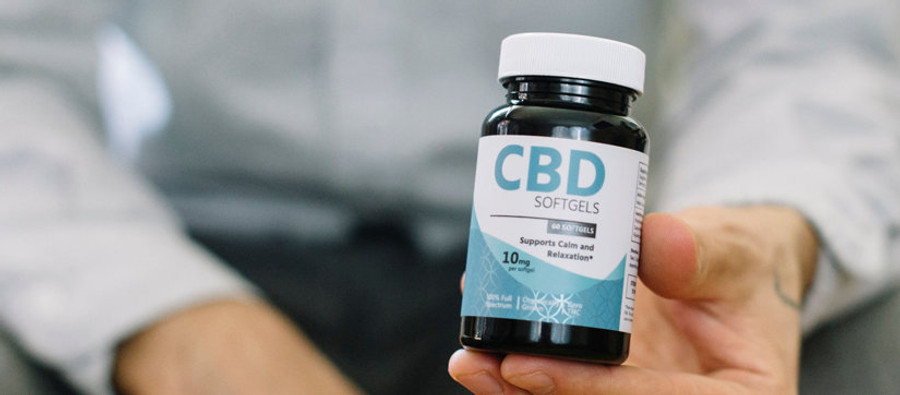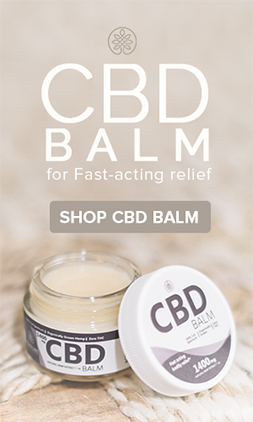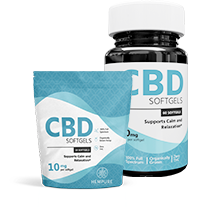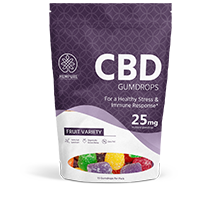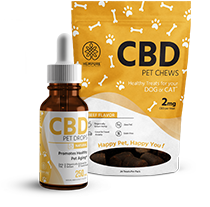Organic CBD Oil vs. Non-Organic CBD Oil: What's the Difference?
Sabina King on Jun 20th 2019
There are a few terms you’ve probably heard floating around the world of CBD: organic hemp oil, organic CBD oil, organic cannabis oil, organically grown hemp and more.
Several of these are used interchangeably even though they are, in fact, very different things.
It’s best to arm yourself with knowledge so that manufacturers aren’t able to lure you in with misleading or confusing labels.
What does organic mean?
Buying organic can mean many different things, both for your family and for the environment. Here’s how organic products can benefit the environment:
Better quality of fields:
Chemical pesticides sprayed on non-organic crops kill pretty much everything in the soil besides the plant itself, including beneficial microbes that fertilize the soil. Farmers must then make up for the lack of soil fertility by adding chemical fertilizers. Over time, the soil loses all its nutrition. Organic farming, however, retains the soils natural fertility, which also means that the same piece of land can be farmed for longer periods.
Fewer superbugs:
Another downside to the use of synthetic pesticides is that they eventually give rise to super strains of microbes. Germs are very often adaptable and can grow immune to pesticides that are used regularly, becoming stronger until nothing can kill them anymore. Using organic pesticides and better farming practices to repel pests instead of killing them can inhibit the growth of these super strains.
More pollinators:
As mentioned earlier, synthetic pesticides can’t differentiate between good insects and bad insects and end up killing many pollinators, an important part of any ecosystem. Organic farming maintains biodiversity – by repelling pests instead of harming them, no part of the ecosystem needs to die.
Fewer chemicals in our oceans:
Everything we use eventually ends up in the water bodies of the world. The consequences of fertilizers and pesticides entering the oceans can be disastrous – they could harm biodiversity or create unusual microbial growth. Organic fertilizers and pesticides don’t have the same effect on oceans.
Clearly, it's good to go organic, but manufacturers can capitalize on the shift towards these products by labeling anything as organic. One title that’s particularly popular is that of organic CBD oil. The growing trend is commendable, but before you trust the ‘organic’ label, here are some things you should know.
What is Organic CBD?
CBD is a compound derived from the hemp plant. The hemp plant can most definitely be grown using organic methods, but many companies choose to call their CBD oil “organic”, which, due to current USDA certification standards, is impossible.
Here’s why: domestic hemp and CBD oil is not a USDA (US Department of Agriculture) certified organic product. To attain the ‘organic CBD oil’ status, it would have to be recognized by the FDA or Food and Drug Administration. As things stand now, the FDA does not regulate CBD products, hence any US-based company calling their CBD oil organic is misrepresenting facts.
Here’s where it gets tricky though: the USDA does certify imported hemp products, which puts US-based companies at a disadvantage. This doesn’t mean that imported CBD is better. It just means domestic CBD companies can’t use the USDA certified organic label while international CBD companies can. So, if you want to buy domestic and organic, where does that leave you?

Organically Grown Hemp
While you may not be able to find domestic organic CBD oil, you can insist on CBD derived from organically grown hemp. This means the hemp farmers use organic farming methods that keep a few key factors in check:
- Toxicity levels
- Use of chemic
al fertilizers and pesticides - Effect on human health
- Potential environmental impact
- Compatibility with sustainable agriculture
Before purchasing a CBD product, make sure to check the manufacturer’s website or pamphlet. A trustworthy brand will provide information about their farming and manufacturing processes. Seeded locally in Oregon and Colorado, all Hempure products are made using non-GMO hemp plants and organic farming practices.
Why is it important to use CBD made from organically grown hemp?
Finding a CBD brand made from organically grown hemp should be a top priority since hemp is a natural bioremediator. This means that the plant has the incredible ability to draw toxins and metals from the soil. While this is a huge plus if your goal is to clean up the soil, it is not desirable if you plan to make CBD from hemp grown in toxic soil. The plant will absorb any chemical fertilizers or pesticides used in cultivation. If your CBD comes from contaminated hemp, it’s very likely that some of those chemicals will wind up in the final product.

A disclaimer, though: CBD that comes from hemp that has been grown organically can still contain toxins and metals, either because of hemp’s bioremedial qualities or because of a company’s manufacturing process. To make sure that you’re consuming the cleanest CBD blend, insist on third-party lab tests from your provider. Hempure tests products for potency, toxins, microbes, terpenes, and solvents. See our third-party lab test results to know more.
CBD oil, hemp oil, cannabis oils: are they the same?
Short answer: No. CBD oil, hemp oil, and cannabis oil are different solutions. Even though people tend to use cannabis to refer to marijuana, cannabis is actually a plant family that includes many species, including marijuana and hemp. Hemp plants contain less than 0.3% THC (the part of the plant that gets you high). Marijuana plants are high in THC. Because people use cannabis and marijuana almost interchangeably, cannabis oil usually refers to marijuana oil. The main differences are:
- Hemp oil is derived from hemp seeds. CBD oil derives from the flower of the hemp plant. Cannabis oil comes from the bud of the marijuana plant.
- Hemp oil contains less than 0.0001% of CBD in volume. CBD oil contains around 10-25% of CBD in volume. Cannabis oil contains a blend of different cannabinoids and is THC rich.
- Hemp oil is considered a food product, so it carries a nutrition label. CBD oil and cannabis oil have a supplement label.
Hemp oil is very popular as a source of nutrients and is often used in cooking and skincare. The oil is rich in essential fatty acids that help with support your heart, brain, and digestive system. The oil is also excellent for soothing dry and irritated skin.
What is organic hemp oil?
Regular hemp oil and organic hemp oil both come from non-GMO plants, grown without pesticides or herbicides, but conventionally grown hemp might use chemical fertilizers at the beginning of its growing cycle.
So, do the same rules about buying organic apply to hemp oil too? Absolutely! It still comes from the same plant, so it’s equally important that your hemp oil comes from organic hemp seeds.
The future of organic certification: what it means for CBD
With the passing of the 2018 Farm Bill, hemp was finally removed from the list of Controlled Substances. Now, state departments of agriculture must consult with regulatory authorities to devise a plan that can be submitted to the USDA. Once that plan is approved, the USDA can commence the licensing and regulation of hemp, which means that certified organic CBD oil is not too far away!

Organic CBD oils, cannabis oils or hemp oils? Which
to choose?
For a wellness boost, CBD oil is the go-to. If you’re looking for a nutrient-rich oil to add to your cooking or beauty regimen, go for hemp oil. If you want the effects of marijuana for recreational or medicinal purposes, opt for cannabis oil.
Since both CBD oil and hemp oil are derived from the hemp plant, make sure your CBD or hemp oil is derived from organically grown hemp. Most importantly, any company that labels their CBD oil organic is misleading. Always check the manufacturer's website/packaging for third-party lab test results to make sure their products contain no harmful toxins.








